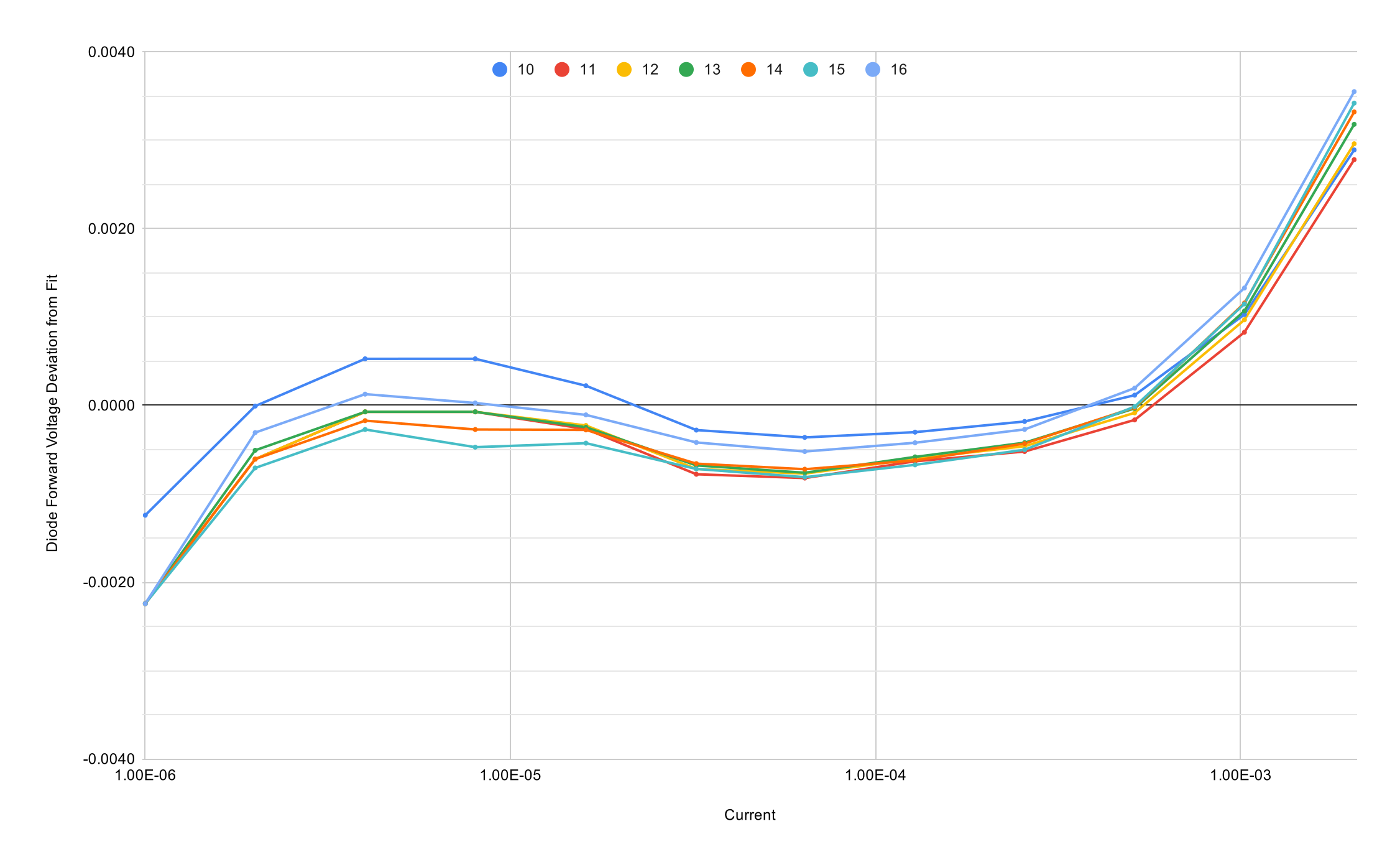I have a log/anti log application that requires “slightly” matched diodes - something better than you get just by grabbing a bunch of 1N4148s from a bin. I need the matching to be across each group of 3 diodes. The goal is to be cheap, the relative accuracy of the circuit is somewhat loose - +/-20% Vf-vs-I match is plenty good.
All the diodes are continuously forward biased and operate over a 2 decade current range. The bandwidth is <1kHz.
I was wondering whether the flyback diodes inside of an ULN200x family of chips could be used for this purpose, assuming that otherwise the chip’s absolute maximum ratings won’t be exceeded (power dissipation, diode current, etc.).
My presumption is that they’d be better matched initially, and better thermally tracking, than a bunch of discrete diodes on a common heat spreader, say several leaded SMD diodes - not selected/matched - mounted close together on an aluminum substrate board.
I will likely post my own measurements, when I get a chance, as an answer - but I was looking for any suggestions/input anyone might have - as well as any alternative chips that could be conscripted for this purpose.


